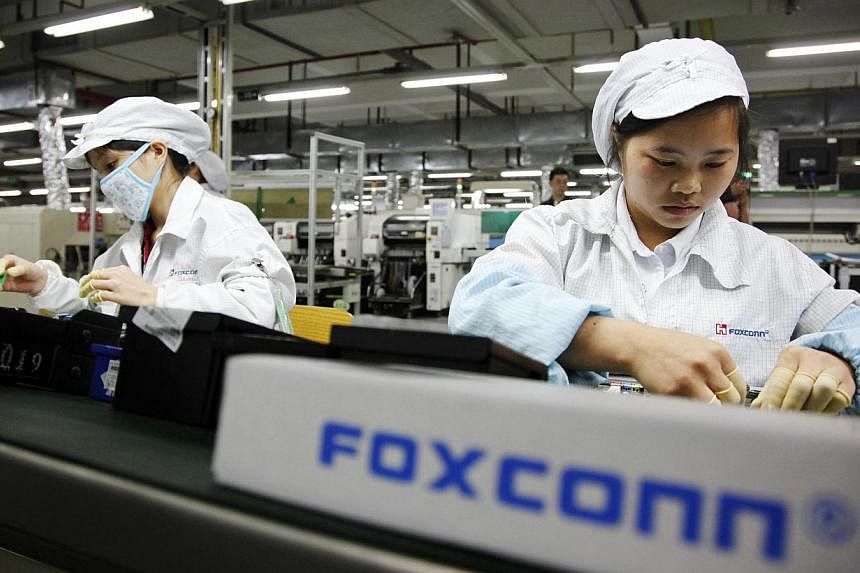BEIJING (Reuters) - China's factories suffered their fastest drop in activity in a year in April as new orders shrank, a private business survey showed on Monday, hardening the case for fresh policy stimulus to halt a slowdown in the world's second-largest economy.
The HSBC/Markit Purchasing Managers' Index (PMI) fell to 48.9 in April - the lowest level since April 2014 - from 49.6 in March, as demand faltered and deflationary pressures persisted.
The number was weaker than a preliminary reading of 49.2, and below the 50-point level that separates growth from contraction compared with the previous month.
The overall new orders sub-index dipped to 48.7 in April, the sharpest contraction in a year, although new export orders showed tentative signs of improvement.
Both input and output prices declined for a ninth month in April, while manufacturing employment contracted for an 18th month, auguring poorly for an economy that grew at its weakest rate for six years in the first quarter.
"China's manufacturing sector had a weak start to Q2, with total new business declining at the quickest rate in a year while production stagnated," said Annabel Fiddes, an economist at Markit. "The PMI data indicate that more stimulus measures may be required to ensure the economy doesn't slow from the 7 per cent annual growth rate seen in Q1."
An official survey released on Friday showed China's factories struggled to grow in April as domestic and export demand remained weak, reinforcing expectations that Beijing will roll out more measures to support the slowing economy.
The private survey focuses on small and mid-sized firms, while the official one looks more at larger, state-owned companies.
Shanghai shares extended early losses to more than 1 per cent after the PMI, while Hong Kong's Hang Seng index surrendered gains and the Australian dollar eased.
Aside from weakness in the manufacturing sector, China's economy is struggling with a downturn in its property market and high levels of domestic debt.
The government has pledged to step up fiscal spending this year to support investment and economic growth.
On Thursday, the Politburo, the ruling Communist Party's top decision-making body, said that authorities will step up policy "adjustments" and should cut taxes further. It also said the government must resolve financing glitches that are holding up big infrastructure projects.
China's economic growth is expected to slow further to 6.8 per cent in the second quarter, the State Information Centre, a top government think tank, said in a research report published on Monday.
The central bank, which has cut interest rates twice since November and reduced banks' reserve requirements to boost their lending power, is widely expected to loosen credit conditions further.
Most economists believe China's economic growth could cool to a quarter-century low of around 7 per cent this year from 7.4 per cent in 2014.

